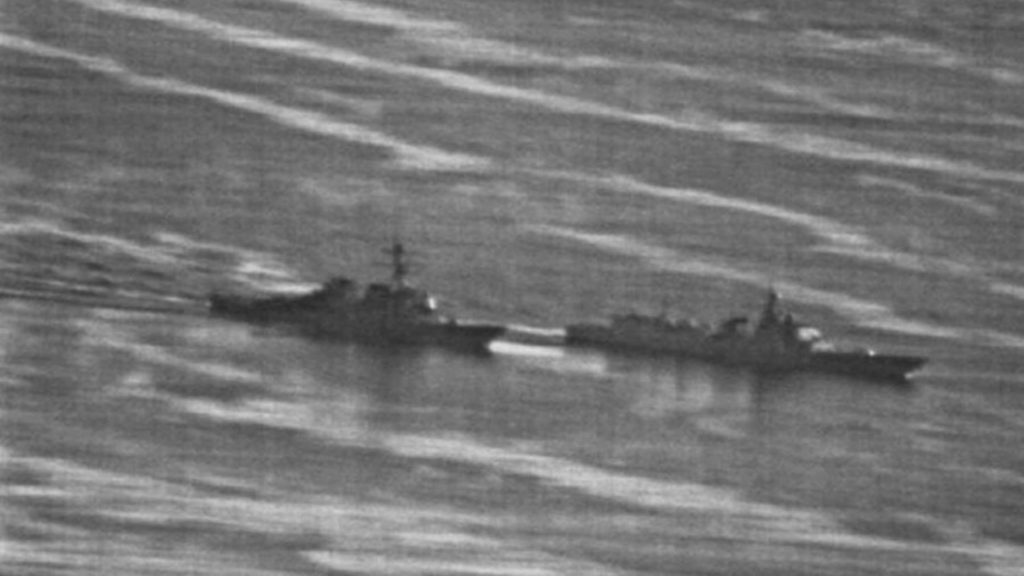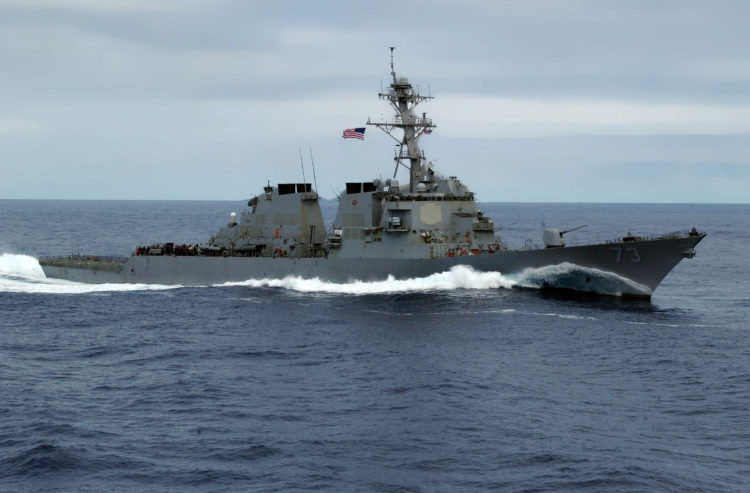The South China Sea has been the scene of heightening tensions between China and a number of nations in recent years, thanks to their claims of sovereignty over the entirety of the waterway placing their official policy directly at odds with international law. The United States — which boasts the most powerful Navy in the world, and a laundry list of alliances in the region — has been at the forefront of challenging China’s aggressive ways in recent years, and in September, that aggressive stature nearly resulted in a collision between Chinese and American destroyers.
The incident occurred during what the U.S. Navy has dubbed a Freedom of Navigation Operation, or FONOP. The basic premise is simple: the United States Navy sails its warships through the South China Sea in what the global community sees as international waters. Their presence as they pass through is meant as a symbolic message to China, indicating that the United States recognizes international law rather than the Chinese government’s claims of ownership. However, China’s rapidly expanding Navy has recently adopted a more aggressive posture when it comes to these violations of what they consider to be their sovereign territory.
The result, as the world witnessed in September, may sometimes be two massive warships, both representing powerful nations, with their backs against the proverbial wall. U.S. warships, representing the most powerful navy and nation in the world, won’t be pushed around by Chinese vessels attempting to bully the rest of the world out of a region that sees a third of global commerce shipped through its lanes. The Chinese, however, see America’s presence as a threat to their nation’s security. Both vessels know their foothold in the region is at stake with each interaction, and that the stakes are even higher if such an interaction were to turn violent..

The Chinese Navy, commonly known as the People’s Liberation Army-Navy, is no stranger to issuing threats to American aircraft and vessels operating in the South China Sea, and this most recent close call between destroyers was no different.
“You are on [sic] dangerous course,” warned the Chinese destroyer Luoyang when it and the USS Decatur nearly collided in September. “If you don’t change course your [sic] will suffer consequences.”
The Arleigh Burke-Class guided missile destroy USS Decatur’s FONOP took it to within 12 nautical miles of Gaven and Johnson Reefs in the Spratley Islands. The Chinese government has spent the better part of the past two years building these reefs up into artificial islands and equipping them with military assets like barracks, airstrips, and anti-aircraft weapons. The Chinese believe these newly established islands with both diplomatically extend their claims of ownership over the waterway and bolster their defensive position when nations like the United States choose to challenge them.
According to the Pentagon, these dangerous interactions are expected to ramp up in the coming months. While war may seem unlikely, placing U.S. and Chinese military assets in such close quarters could be a recipe for disaster if either Chinese or American military officials let their nerves get the best of them. It seems unlikely, however, that either nation will back off from its position regarding the South China Sea for the sake of diplomacy, which begs the question: is there any outcome to the quagmire in the South China Sea other than war?
On a long enough timeline, someone will have to lose — and national interests dictate that neither the United States nor China can back down.
Watch footage of the close call between American and Chinese destroyers below:
2018년 9월 남중국해
The Chinese Luoyang destroyer vs the USS Decatur
Never-before-seen footage:
A near collision between a Chinese and a US warship in the South China Sea. https://t.co/Bnqo8YtS7D pic.twitter.com/BhAJcZ8dRS :@SCMPNews— qlstnfp (@qlstnfp) November 4, 2018










COMMENTS